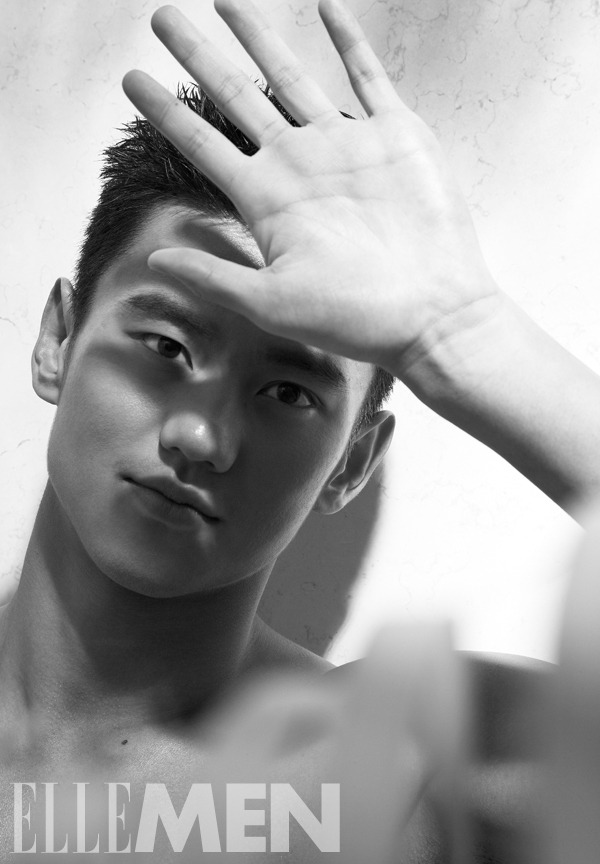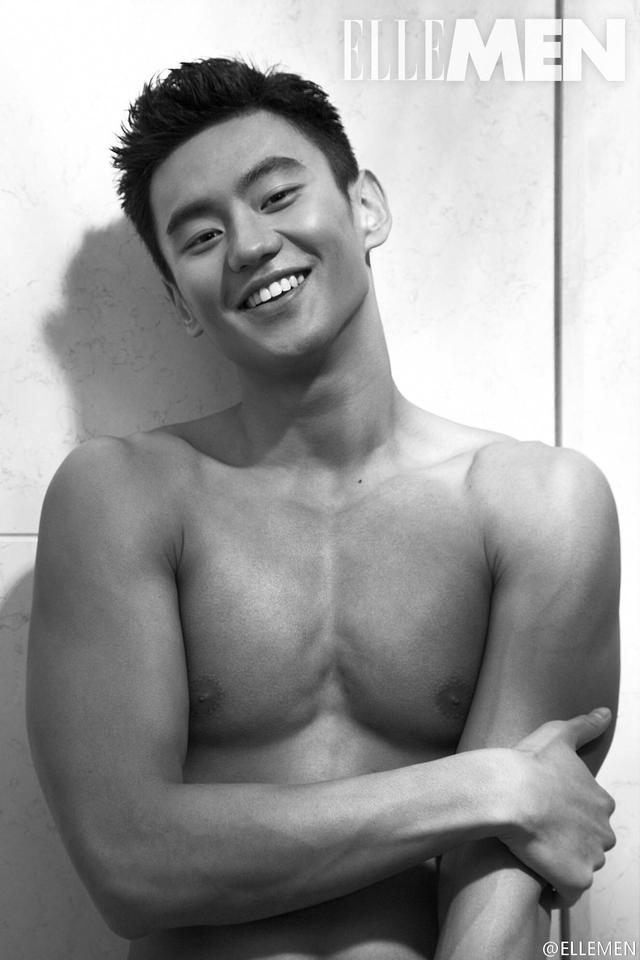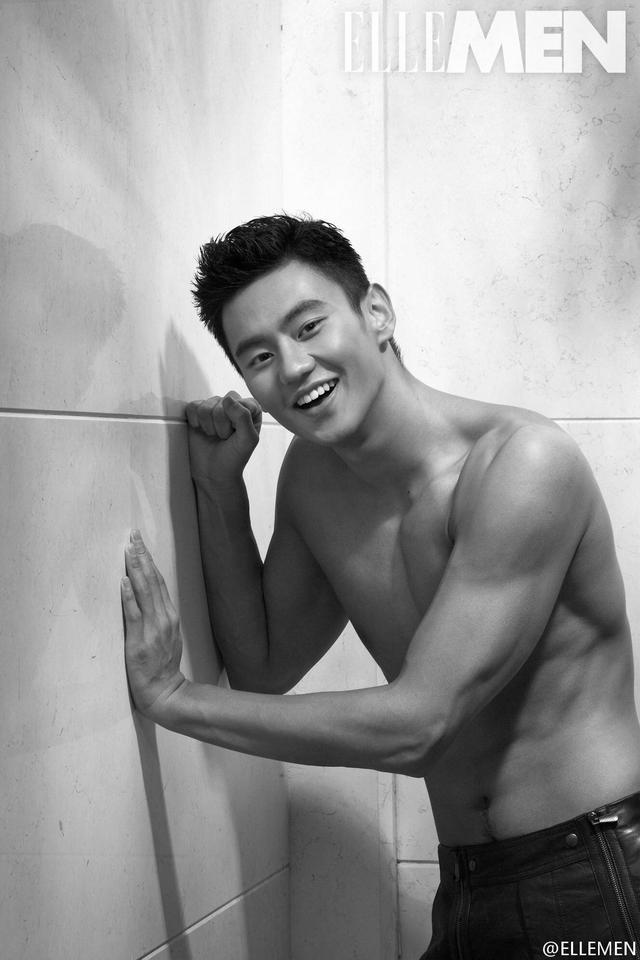Note: This interview discusses some – vague – plot points from 「Star Trek Beyond」.
When John Cho learned that 「Star Trek Beyond」 would show that his character, Hikaru Sulu, is gay, he had a couple of concerns. One of those concerns? That George Takei, the man who originated the character, would not be happy. The younger Sulu turned out to be right, even if Takei was unhappy for reasons Cho didn’t anticipate. Takei, an out LGBT activist, called it “a twisting of [「Star Trek」 creator] Gene [Roddenberry]’s creation.” What was supposed to be a tribute to Takei and a revolutionary moment for the franchise ended up a point of contention.
Cho, however, is ultimately proud of what 「Star Trek Beyond」 has done. After all, the actor knows something about the importance of representation. Earlier this year, his face and name were used in a campaign – #StarringJohnCho– that has highlighted how Hollywood underserves Asian actors.『The A.V. Club』recently spoke to Cho about the movie and the news.
When John Cho learned that 「Star Trek Beyond」 would show that his character, Hikaru Sulu, is gay, he had a couple of concerns. One of those concerns? That George Takei, the man who originated the character, would not be happy. The younger Sulu turned out to be right, even if Takei was unhappy for reasons Cho didn’t anticipate. Takei, an out LGBT activist, called it “a twisting of [「Star Trek」 creator] Gene [Roddenberry]’s creation.” What was supposed to be a tribute to Takei and a revolutionary moment for the franchise ended up a point of contention.
Cho, however, is ultimately proud of what 「Star Trek Beyond」 has done. After all, the actor knows something about the importance of representation. Earlier this year, his face and name were used in a campaign – #StarringJohnCho– that has highlighted how Hollywood underserves Asian actors.『The A.V. Club』recently spoke to Cho about the movie and the news.
The A.V. Club: In the movie, the central conflict between Krall, who thinks people thrive on conflict, and the Federation, which believes in unity, seriously resonates in this political climate. Have you guys been thinking or talking about that?
John Cho: Yes, we certainly have. When I read the script last year, it was relevant then but in particular now. We traveled to Sydney to begin this press tour, and then everything went bananas in the United States with the events in Dallas and all that stuff. It has been resonant. Obviously, coming up on this election cycle – this has been one of the strangest presidential races that I can remember – so we’ve been thinking about unity versus division, similarities versus differences. That has been on our minds as we talk about 「Star Trek」 and what it stands for, what the Starfleet stands for, and its place in culture.
AVC: Have you had any responses from people to that effect?
JC: The general audience hasn’t gotten to see the movie, but it has not escaped [journalists], and it has not escaped us. I think it does make the themes of the movie more resonant with us. Oddly, the tumult of this year reminds me of the late ’60s, when Roddenberry created 「Star Trek」. It was a similarly divisive time in America. There were assassinations at that time. I’m trying to think of – knock on wood – how young people would feel today if our president and our leaders were shot at. But... our young people are being killed at an astonishing rate, and times seem dark. Times seem similarly dark. The message of 「Star Trek」, if there is one, seems to be that we should try to live up to the very best that we’re capable of. 「Star Trek」 seems to be an appeal to our better nature, the side of ourselves that works toward peace and cooperation and understanding and knowledge and yearns to seek out knowledge rather than the side that wants to divide and control one another.
AVC: Could you walk people through how Simon [Pegg], Doug [Jung], and Justin [Lin] first told you that Sulu would have a husband? What was your reaction? How did you first learn it?
JC: I learned it first from Justin. Simon had pitched it. I heard from Justin early on in preproduction. I was concerned for a few reasons. I was concerned that George wouldn’t like it, and it turned out to be true. But I was actually concerned that he wouldn’t like it for a different reason. I thought that George would object because he’s a gay actor who was playing straight. I know that was difficult, that he couldn’t come out and that he had crafted a straight character. Then, now, because he’s an activist and he’s out of the closet – clearly, this is an homage a little bit to him – [I worried] he would object to us taking that from his life and say, “Hey, I was a gay actor who created a straight character, and now you’re making him gay because I’ve come out of the closet?,” that we were just seeing him for his sexual orientation. So I thought that would be where he would object. It turns out not to be his objection. But that’s what I was worried about.
And secondly, I was concerned that Asians and Asian Americans might see it as a sort of continuing feminization of Asian men. Asian American men, Asian men have been basically eunuchs in American cinema and television, and I thought maybe it would be seen as a continuation of that.
Thirdly, I was concerned that because this is the same genetic Sulu – although we’re in an alternate timeline – that we would be inadvertently implying that sexual orientation was a choice. So those were my areas of concern. Having said that, I was convinced that the message was pure and that it was coming from a really good place, and I thought that it was handled correctly. People would buy it. And I think we have handled it correctly, and I think people are not worrying about the issues that I was worried about.
AVC: Do you still maintain those concerns a little bit?
JC: Yes, I do. They’re not gone. But, on the other hand, I think, narratively, it’s really good. We’re executing Roddenberry’s intent, I think: infinite diversity in infinite combinations. It’s very much a part of the ethos of 「Star Trek」. I have to say, all things considered, it’s working great, and I’m proud of it. George was very important to me as a kid. Seeing his face on TV as an Asian American kid in Houston, Texas, in the early ’80s, was very impactful for me. Aside from it just being a great narrative device – which it is because it personalizes the stakes when Yorktown [a Starfleet base] is threatened by Krall, our villain – the best thing I can hope for is that it encourages some gay or lesbian viewer, who is young and doesn’t feel like he or she sees enough of themselves on the screen. So if there’s somebody out there who digs it and feels less afraid, then right on.
AVC: You mentioned the Yorktown moment, which was a really interesting thing. Oftentimes, when a place is threatened in a movie, we have the male hero and the girlfriend or the wife back home. That changes here.
JC: You know, I had requested that my husband be Asian.
AVC: Why was that?
JC: The reason was that I grew up with some gay Asian male friends. You don’t really see Asian men together very often. It’s very rare in life. I’ve always felt that there was some extra cultural shame to having two Asian men together, because it was so difficult to come out of the closet, so difficult to be gay and Asian, that they couldn’t really bring themselves... It’s easier to run away from people that look like your family. I wanted the future to be where it was completely normal and therefore, aside from the gender, they look like a traditional heterosexual couple. So that relationship, to me, the optics of it are that it looks very traditional on the one hand and very radical on the other.
AVC: Since the “Starring John Cho” meme, you’ve been at the center of a lot of these recent discussions about representation. How does that feel?
JC: It’s cool. Sometimes it’s exhausting. Sometimes I just feel like I’m not talking about acting or character. On the other hand, I’m fine with it. I’m happy to do it, because these are issues that are important to me personally. It’s just weird sometimes, because it’s not germane to my job as such. So it seems strange to be at the center of it. But I think it’s a very healthy discussion to have, and it’s necessary. They are ideas whose time has come, but really they are ideas whose time had come a long time ago, and the execution is lagging. And that’s why we’re having the discussion, because the execution is not forthcoming. So I’m happy to talk about it and happy to do something about it if needed, if I’m in the position to do it. I just happen to be the talking point or rather the impetus for the moment. In 20 minutes, it’ll be something else, but it’s my turn to talk about it, I suppose.
AVC: Regardless, gay or straight – in this instance, Sulu happens to be gay – but we’re learning more about his backstory. Even if we don’t get a long explanation for it, how did that affect your performance?
JC: For me, it shifts things, because the objective is not just to save the crew or just to get the ship up, but the superobjective is to get back home to the family and protect the family. So it does add a layer of meaning to everything that you’re doing. It sounds silly when you’re pushing fake buttons, but it’s true that it does motivate the fake pushing of buttons in a different way.
AVC: On a lighter note, there’s a really great scene that involves the Beastie Boys’ 「Sabotage」. Was filming that fun?
JC: We did pump the tune before we got into that section. It’s a badass tune, so we were just all bobbing heads for a minute and then had to stop bobbing heads. They were like, “Okay, okay, stop! Stop! Stop! Stop bobbing your head!”
AVC: It seems like you guys also had a blast doing the Dubsmashes.
JC: Yeah, we got a little out of hand with the Dubsmashes. It got out of hand, and then it got in hand, and now it’s out of hand again.
Author: Esther Zuckerman/Date: July 19, 2016/Source: http://www.avclub.com/article/john-cho-representation-and-his-concerns-gay-sulu-239666





















































